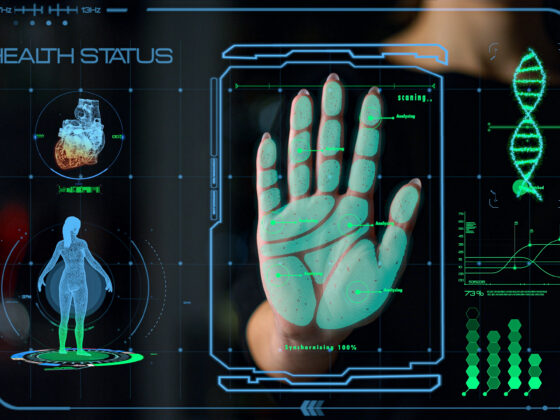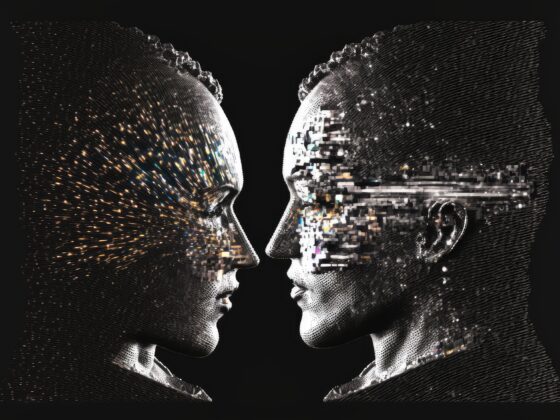“There are no plans to introduce digital ID. Our position on physical ID cards remains unchanged.”

These were the words of UK Prime Minister Rishi Sunak’s spokesman a couple of days ago. Note the rather unusual use of the word “physical” to describe what is, generally speaking, a non-physical document (digital ID). This has sown all sorts of confusion in a country that is instinctively distrustful of identity cards and where the debate around digital identity is finally seeping into the public arena.
The statement came in response to former Prime Minister Tony Blair’s latest attempt to peddle digital identity, this time alongside former Conservative Party leader William Hague. In a joint letter, the two former politicians said “[e]veryone in Britain should be given a digital ID incorporating their passport, driving licence, tax records, qualifications and right to work,” as the cornerstone of a “technology revolution” in governance.
The digital ID system would be “secure, private [and] decentralised,” yet would also somehow bring together each individual’s data from across all government agencies. “Other countries are forging ahead,” said Hague. For the UK to keep or get ahead, it “has to redesign the state around technology.”
“A Natural Evolution”
While prime minister Blair tried — and ultimately failed — to introduce mandatory physical ID cards. He was also one of the first prominent proponents of digital vaccine passports. As early as June 2020, before any vaccine had reached the market, Blair told the Independent that people would need a form of “digital ID” so they could prove their “disease status” as the world gradually moved out of lockdown. This, he said, is part of a “natural” technological evolution that encompasses more than just COVID-19 vaccines and public health (comment in parenthesis my own).
“It’s a natural evolution of the way that we are going to use technology in any event, to transact daily life (an interesting choice of words given the potential threat the introduction of central bank digital currencies could pose to people’s ability to transact), and this COVID crisis gives an additional reason for doing that.”
A year and a half later, despite the vaccines’ by now undeniable shortcomings, Blair’s position remains the same. During a panel discussion at the latest World Economic Forum meeting in Davos, he said:
In the end, you need the data: you need to know who’s been vaccinated and who hasn’t been. Some of the vaccines that will come down the line, there will be multiple shots. So [for vaccines] you’ve got to have — for reasons to do with healthcare more generally but certainly for pandemics — a proper digital infrastructure and most countries don’t have that.
A couple of weeks ago, Blair’s eponymous foundation, the Tony Blair Institute for Global Change (TBIGC) released a report titled “A New National Purpose: Innovation Can Power the Future of Britain.” The report’s seven authors call for “a fundamental re-ordering of our priorities and the way the state itself functions,” which includes the introduction of an all-encompassing digital ID system:
“A well-designed, decentralised digital-ID system would allow citizens to prove not only who they are, but also their right to live and work in the UK, their age and ownership of a driving licence. It could also accommodate credentials issued by other authorities, such as educational or vocational qualifications. This would make it cheaper, easier and more secure to access a range of goods and services, online and in person. A digital ID could help the government to understand users’ needs and preferences better, improving the design of public services.
Blair’s Global (i.e. Largely US) Partners
Tellingly, the word “privacy” appears only once in the document, which calls into question just how seriously the report’s authors and endorsers take the potential risks and pitfalls posed by the technological platforms they are hawking.
TBIGC’s partners are largely US based. They include the Bill and Melinda Gates Foundation (quelle surprise!), the Gates Foundation-sponsored Alliance for a Green Revolution in Africa (AGRA), Microsoft Philanthropies APAC, Microsoft Philanthropies MEA, the Washington-based Center for Strategic and International Studies (CSIS), Washington’s soft power arm, USAID, the Rockefeller Foundation and the US Agency for International Development.
On a positive note, Blair and Hague’s letter has at least kindled a discussion of sorts on one of the most pressing issues of out time, not just in the UK but everywhere. Hopefully, the UK will now have an open, wide-ranging public debate on the issue (though I’m not holding my breath).
Biometric-enabled digital IDs have the potential to make life much more efficient and streamlined. But as Brett Solomon warned in a 2018 piece for Wired magazine, they also pose “one of the gravest risks to human rights that we have encountered.” Perhaps most importantly, they can — and probably will — be used to enable or disable our full and free participation in society, just as the vaccine passports did.
In an editorial for The Independent, Sean O’Grady tore Blair and Hague’s proposal to shreds:
Hague and Blair say they want Prometheus unleashed via the Government Gateway. To which I can only reply: “I’m not convinced, and even if I was, I don’t care for it”
I don’t trust the British state, neither to construct a workable system in the first place, nor to guarantee its privacy and security. I’ve had some experience of the Government Gateway and the NHS database, and, while magnificent in some respects, they’re also flawed.
I can also remember the disastrous NHS IT database scheme that was eventually abandoned in 2013, after £10bn had been spent on it and written off (stretching over the period when Blair and Hague were in government, funnily enough). Not to mention when that civil servant left the tax records of millions of people on a train.
Privacy and System Fragility Risks
Silkie Carlo of Big Brother Watch told the BBC that the proposed digital ID system “would be one of the biggest assaults on privacy ever seen in the UK.”
There are also serious issues with system fragility, as we are reminded on an almost daily basis. For example, in 2021 a hacker stole the ID credentials of the entire population of Argentina through its ‘National Registry of Persons’, as Daily Record reported:
[The hack] targeted RENAPER, which stands for Registro Nacional de las Personas, translated as National Registry of Persons.
The agency is a crucial cog inside the Argentinian Interior Ministry, where it is tasked with issuing national ID cards to all citizens, data that it also stores in digital format as a database accessible to other government agencies, acting as a backbone for most government queries for citizen’s personal information.
But Blair’s messianic zeal remains undimmed. When asked about people’s fears of ID systems and tech errors, Blair told the BBC:
“If you look at the biometric technology that allows you to do digital ID today, it can overcome many of these problems. And by the way, the world is moving in that direction. I mean, countries as small as Estonia and as large as India are moving in that direction – or have moved.”
Blair tries to create the impression that the government has no alternative but to follow the herd of other national governments that have already adopted digital ID systems, regardless of the risks posed to privacy and other basic freedoms. But Blair has been disastrously wrong about hugely important things before (e.g. Iraq, humanitarian intervention, joining the euro, public finance initiative…), albeit at no cost to himself.
The current occupant of 10 Downing Street is apparently unconvinced by Blair’s arguments. If one is to believe his spokesperson, Rishi Sunak’s government has “no plans to introduce digital ID.” But Brits would probably do well to take this pledge with a truckload of salt, for three main reasons (feel free to add more):
Read the rest here:














